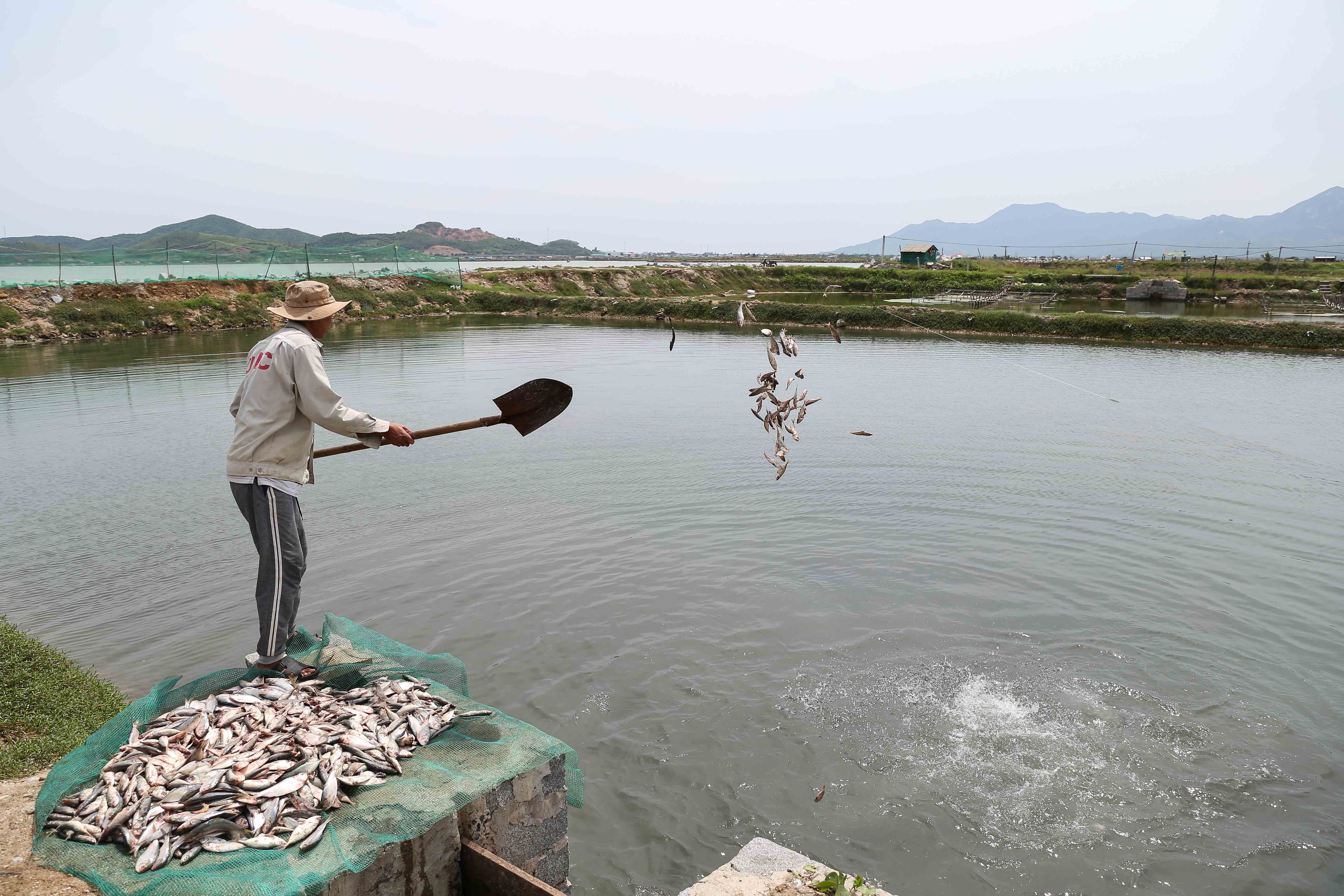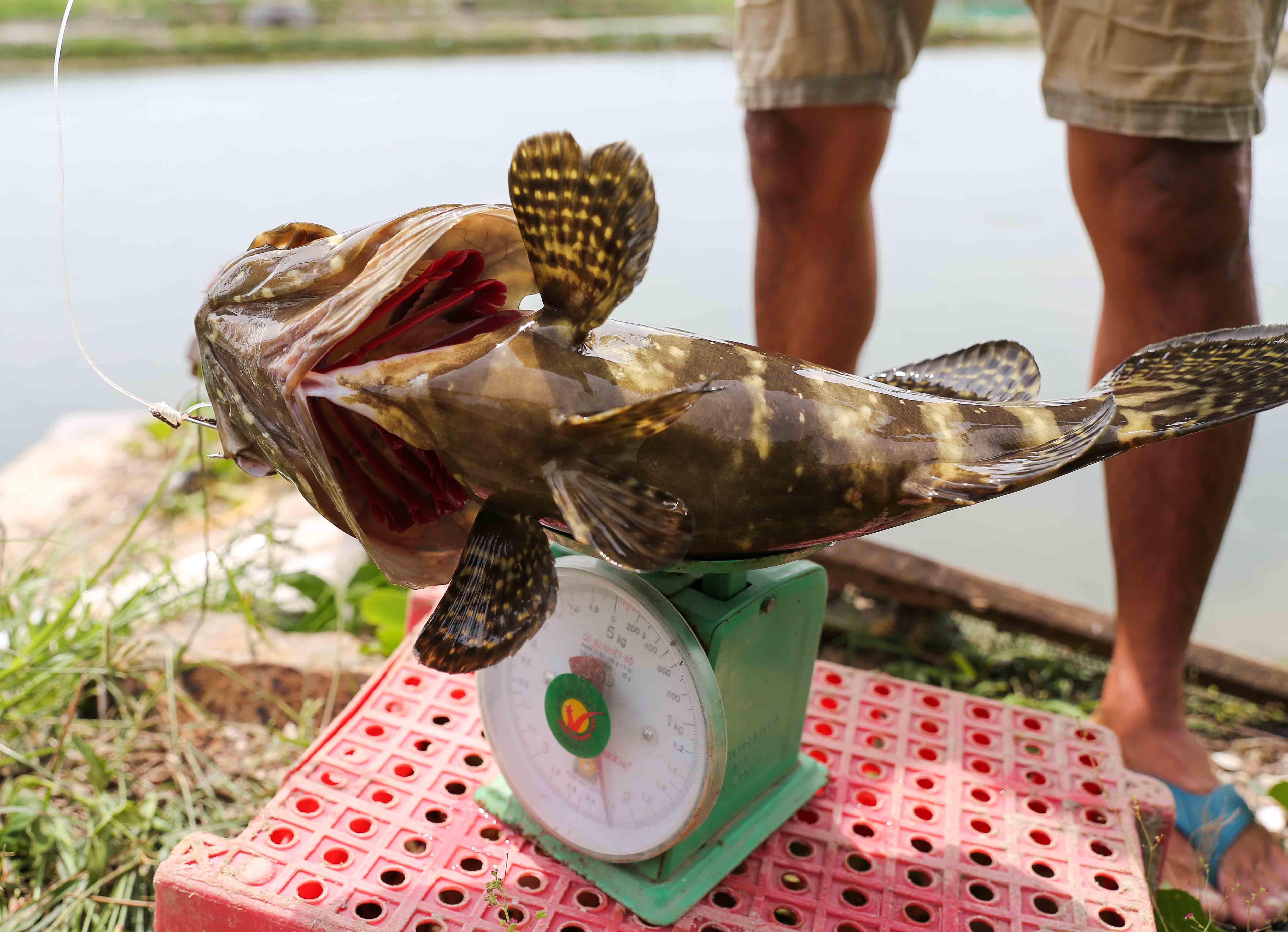A new ACIAR-supported research project will develop high-quality, environment-friendly and commercially viable feed to ensure the sustainable development of Vietnam's lucrative grouper industry.
Groupers are the most profitable marine species in Vietnam's expanding marine aquaculture industry, providing income for around 2,000 Vietnamese smallholders. However, unsustainable feed practices are hindering the industry's growth.
Feeds and fingerlings constitute up to 91% of grouper farming costs, with the industry still largely reliant on low-value, wild-caught and small-sized fish, which are limited in supply. This dependence has led to environmental pollution, increased occurrence of disease in grouper populations and further expense for fish growers.
The 4-year A$2.58 million project led by James Cook University (JCU) will work with farmers to increase the adoption of sustainable, cost-effective commercial feed and better understand nutritional requirements to boost fish growth.
'Groupers appear to have specific nutrient requirements, and robust nutritional knowledge is core to making high-performing feed to optimise farm productivity with minimal environmental impact,' said project leader Dr Leo Nankervis from JCU.
The project aims to scale up the production and market availability of these feeds by refining their nutritional content and working with feed companies.
Building on the success of a previous ACIAR-supported research project, the research team has fostered strong collaboration with industry partners, government bodies and small-scale farmers. With the involvement of Vietnam's Research Institute for Aquaculture, the partnership will support the transition from wild feed to formulated feed across Vietnam's entire coastline.

By ensuring stable access to high-quality feed, which can be stored for long periods without degrading, the project aims to enable farmers to use less feed for higher fish production, increasing profits and industry growth.
'Additionally, farmers can have a stronger market appeal by adopting environmentally friendly feed. And they will also be equipped with the skills to manage larger-scale operations effectively,' said the project's national coordinator, Dr Nguyen Van Nguyen, from Vietnam's Research Institute for Aquaculture No.2.
While focusing on feed, the project will also support better fingerling production and help the industry transition to more sustainable practices. Additionally, their dedication to supporting and training smallholder farmers to become small and medium enterprises (SMEs) will drive meaningful positive change in the industry.
'ACIAR has a long history of working with Vietnamese scientists in fish nutrition research, making it natural for Vietnamese research agencies to seek Australian expertise in developing diets for grouper species,' said Dr Chris Barlow, ACIAR Research Program Manager, Fisheries.
While the research promises to enhance Vietnam's grouper industry, it will also set a foundation for sustainable aquaculture practices worldwide, applying cutting-edge research to solve key challenges.
'We are applying physiological indicators, including fish intestinal health, bone formation and antioxidant systems, to ensure that feeds developed will not only promote growth but also provide a strong basis for health and robustness,' said Dr Nankervis.

'We aim to drive sustainable industry growth in ways not previously attempted. The quality of 'trash fish' [wild-caught and small-sized fish] has not been investigated thoroughly, and there is little understanding of how poor-quality feed impacts fish health and production. Our research will suggest pathways to optimise grouper production and health through feed development,' said Dr Nguyen.
From its inception, the research initiative has engaged with Australian and Vietnamese business partners ensuring collaborations with the private sector that will bridge the industry knowledge gaps and provide smallholder farmers with an economically viable pathway to access the supply chain.
Learn more about the project via the ACIAR website.






